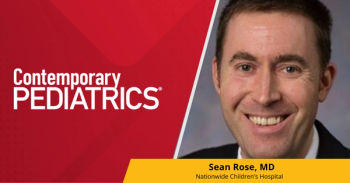
Nurse's H1N1 death sets ominous pandemic tone
The death of a Calif. nurse from H1N1 flu sparked both protests by fellow nurses as well as concern over the issue of healthcare worker safety during a flu pandemic.
One flu truth: Both patients and workers must be protected
This could be a long contentious flu season between hospitals and frontline health care workers, particularly if serious H1N1 infections strike clinicians before a vaccine is available.
Some 100 registered nurses recently rallied in San Francisco as part of an organized protest by the California Nurses Association. The recent death of a 51-year-old nurse in California of H1N1 influenza A was followed by nurses taking to the streets and demanding transparency and accountability for preventing H1N1 the infection. The protest followed what is thought to be the first death of a nurse due to H1N1. The nursing group reported that the woman was a marathon runner in excellent health, but published reports also linked the death to a co-infection with methicillin-resistant Staphylococcus aureus (MRSA).
Though the source of infection is unknown, both MRSA and H1N1 could have easily been acquired in her hospital, Mercy San Juan Medical Center in Carmichael, CA. Indeed, given press reports that she spent long hours there daily, it's an odds-on bet that Karen Ann Hays died July 17 of a severe respiratory infection that had its origins at her worksite. MRSA strain type testing may tell the tale on the bacterial side of things, but the H1N1 source will probably never be known. The death of a frontline nurse even as H1N1 gathers to resurge sets an ominous tone for the coming pandemic season. In particular, co-infection with MRSA could occur in virtually any hospital in the country, ratcheting up the threat level to workers as the two epidemics intersect.
Younger nurses in particular may be at peril from H1N1, with older people apparently having some residual immunity that we can only hope holds through the cold months. On the respiratory protection issue, it's the ghosts of SARS again. An Institute of Medicine committee is expected to weigh in next month on the N95 vs. surgical mask debate, with a CDC advisory committee recommending the latter. The decision hinged on patient care issues, with the consensus being that-as a practical matter-it will be a logistical nightmare to try to get everyone to wear a N95 respirator while caring for what could be millions of unvaccinated H1N1 patients.
Nevertheless, the situation is subject to rapid change and raises some tricky issues. If health care workers demand protection from patients for example, how can they protest the mandatory vaccine initiatives in states like New York? Will they step up to be vaccinated for both seasonal and pandemic flu, ending decades of apathy and low compliance with seasonal flu-which kills some 36,000 people a year. Some unknown but undisputable number of those died after being treated by an unvaccinated flu-infected health care worker. Everybody knows it, but it's virtually impossible to quantify. Maybe the first pandemic in some 40 years will raise helpful issues on all sides, sweeping away this historical miasma to yield one flu truth: both patients and workers must be protected. They must actively try to protect others, including symptomatic patients wearing surgical masks when they seek care. There are plenty of lives to be saved on both sides of this debate.
This story was adapted from one originally published by AHC Media LLC (800-688-2421).
Newsletter
Access practical, evidence-based guidance to support better care for our youngest patients. Join our email list for the latest clinical updates.






